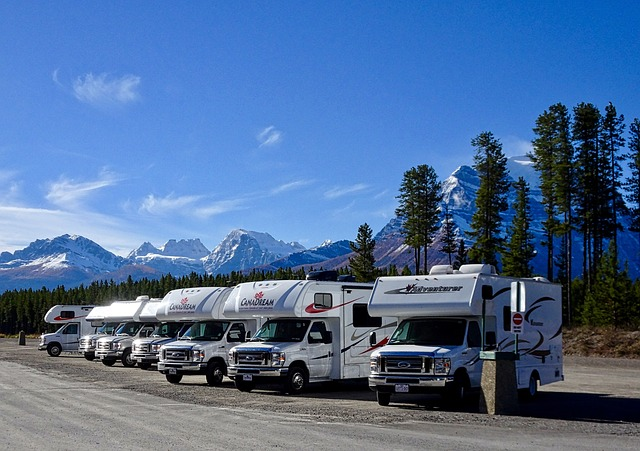The open road beckons, and the allure of adventure tempts many to explore the world of recreational vehicles (RVs). Yet, as thrilling as the RV lifestyle may be, it comes with its own set of challenges, especially for inexperienced drivers. How does driver inexperience with handling RVs contribute to the overall accident rate? In this blog post, we’ll uncover the impact of inexperience on RV accidents, the factors contributing to these mishaps, and the preventative measures that can be taken to ensure a safe and enjoyable journey.
Buckle up and join us as we navigate the complexities of RV driving and uncover valuable insights that can help minimize the risks associated with inexperience. By understanding the challenges faced by new RV drivers and adopting preventative measures, we can strive to make the road safer for everyone.
Key Takeaways
- Inexperienced RV drivers are at risk of making common mistakes that can lead to accidents, and should take steps such as attending driving courses and utilizing safety equipment.
- Manufacturers have a responsibility to provide comprehensive resources on safe operation, while owners must ensure proper maintenance and inspections.
- Determining fault in an accident involving inexperienced drivers requires examining multiple factors. Insurance coverage is available but may come with higher premiums.
The Impact of Inexperience on RV Accident Rates
Inexperience plays a significant role in RV accidents. New RV drivers face several challenges as they adjust to the differences in size, weight, and maneuverability compared to passenger vehicles. These challenges can lead to incidents, as the lack of experience correlates with increased accident rates involving camper vans.
Furthermore, young drivers, who constitute only 5.3% of licensed drivers, are involved in 7.8% of fatal crashes annually. Given that driver age and experience significantly impacts accident prevention and the potential for more severe injuries, new RV drivers, including the young driver demographic, need to acquire sufficient knowledge and understanding to mitigate the risks linked to operating these unique vehicles.
The Learning Curve for New RV Drivers
The learning curve for new RV drivers can be steep. They must adapt to the differences in size, weight, and handling compared to regular vehicles, which can contribute to accidents. Mastering RV driving requires focus and attention to detail, as these large vehicles can lead to accidents and fatalities if not handled properly. Mobile phone usage while driving further exacerbates the problem, as distracted driving is a significant contributor to RV accidents.
Drivers can mitigate cell phone use while driving by installing apps that disable incoming messages at certain speeds or using phone settings that monitor phone use during driving. Parents can also encourage their teens to place their phones in the back seat or turn them off while driving, promoting safe driving habits and reducing distractions.
Common Mistakes Made by Inexperienced RV Drivers
Inexperienced RV drivers may make common mistakes that increase the risk of accidents. These errors include misjudging stopping distances, making improper turns, and overloading their RVs. Misjudgment of stopping distances can arise due to a driver errors lack of familiarity with the size, weight, and handling characteristics of RVs, leading to underestimation of the distance needed to bring the vehicle to a complete stop.
Preventing accidents caused by overloading necessitates RV drivers to be mindful of the weight of travel trailers and stick to the manufacturer’s weight ratings. Proper weight distribution and adherence to the gross vehicle weight rating (GVWR) can significantly reduce the risk of accidents and ensure a safer driving experience with their tow vehicle.
Factors Contributing to RV Accidents Among Inexperienced Drivers
Several factors contribute to RV accidents among inexperienced drivers, including inadequate experience, distraction while driving, and excessive confidence. Inadequate training and education can result in inexperienced drivers not being aware of the potential risks associated with driving. Risk-taking behaviors, such as showing passenger car off to peers or disregarding regulations, can also lead to hazardous outcomes.
Additionally, inexperienced teen drivers may be more prone to engaging in risk-taking behaviors when accompanied by friends, as they may feel encouraged or attempt to impress them.
Lack of Proper Training and Education
Inexperienced RV drivers may lack proper training and education on how to safely operate their vehicles, increasing the risk of accidents. Some first-time RV drivers may receive training courses that cover essential driving skills, parking techniques, and overall RV operation, while others might not have access to such courses or are unaware of their importance. Proper training and education can help drivers gain confidence, feel comfortable on the road, and prevent accidents by providing them with the necessary skills and knowledge.
Unfortunately, some training programs may overlook crucial aspects of RV operation, such as proper maintenance and troubleshooting. A well-rounded education on RV operation and maintenance can help inexperienced drivers avoid accidents caused by mechanical issues or other preventable problems.
Distracted Driving
Distracted driving can be a significant contributor to RV accidents among inexperienced drivers. Using a mobile phone, interacting with passengers, or engaging in other activities in motor vehicle that take the driver’s attention away from the road can lead to accidents. It is estimated that approximately 3,500 RV accidents resulting in fatalities are caused by distracted driving annually.
Minimizing the risk of accidents caused by distracted driving requires drivers to maintain focus on the road and refrain from activities that could divert their attention. Developing safe driving habits and promoting awareness among inexperienced RV drivers can help reduce the number of accidents caused by distractions.
Overconfidence and Risk-Taking Behaviors
Overconfidence and risk-taking behaviors can lead to accidents among inexperienced RV drivers. Speeding, driving under the influence, or making unsafe maneuvers are just a few examples of risky behaviors that can result in dangerous situations for older drivers. In fact, young drivers are involved in a disproportionately high number of fatal crashes, highlighting the importance of promoting safe driving habits and responsible decision-making to address these risk factors.
Educating inexperienced drivers about the dangers of overconfidence, aggressive driving and risk-taking behaviors, as well as fostering a culture of safety and responsibility, can help prevent accidents. Encouraging new RV drivers to take their time, respect traffic laws, and be aware of their surroundings can make a significant difference in reducing the risk of accidents on the road.
Preventative Measures for Reducing RV Accidents Among Inexperienced Drivers
Paragraph 1: Preventative measures can help inexperienced RV drivers reduce the risk of accidents, ensuring a safer and more enjoyable journey. Inexperienced drivers can enhance their skills and lessen the probability of accidents by attending RV driving courses, making use of safety equipment and technology, and practicing defensive driving techniques.
Attending RV Driving Courses
Attending RV driving courses can help inexperienced drivers gain the necessary skills and knowledge to safely operate their vehicles and reduce the risk of accidents. Courses such as RV Basic Training, RV School, and FMCA’s RV Driving School offer valuable training and skills, covering the fundamentals of RV driving, such as handling and backing techniques. Experienced instructors guide students through practical exercises, offering helpful tips and guidance throughout the course.
Participation in these courses can help drivers enhance their driving abilities and lower the risk of accidents. In fact, some insurance companies offer discounts on premiums for completing RV driving courses, incentivizing drivers to participate and encouraging safe driving practices.
Utilizing Safety Equipment and Technology
Utilizing safety equipment and technology, such as rearview cameras and blind spot monitoring systems, can help inexperienced RV drivers avoid accidents. These devices can alert drivers behind the wheel to potential hazards and assist in avoiding collisions. Additionally, ensuring that everyone in the RV has a seatbelt-equipped seat can decrease the risk of injury during sudden stops, swerves, or accidents.
Regular tire maintenance can also help reduce the risk of tire failure and improve overall vehicle stability, thereby reducing the likelihood of accidents caused by tire issues. Investing in driver safety technology systems, such as collision avoidance systems, lane departure warning systems, and blind spot detection systems, can significantly reduce the risk of accidents and promote a safer driving experience.
Practicing Defensive Driving Techniques
Practicing defensive driving techniques can help inexperienced RV drivers prevent accidents. Some important defensive driving techniques to keep in mind are:
- Maintaining a safe following distance
- Avoiding distractions
- Being aware of blind spots
- Being aware of other drivers
By implementing these techniques, you can greatly reduce the risk of accidents while driving your RV.
Incorporating these techniques into daily driving habits can help inexperienced RV drivers decrease the likelihood of accidents and improve their overall driving abilities. Encouraging new drivers to be proactive and vigilant on the road can significantly contribute to a safer driving environment for all motorists.
The Role of RV Owners and Manufacturers in Accident Prevention
Split text into paragraphs:
Paragraph 1: RV owners and manufacturers play a vital role in accident prevention. As the primary caretakers of their vehicles, To minimize the risk of accidents caused by mechanical issues, RV owners should ensure proper maintenance and inspections.
Manufacturers can help prevent accidents by:
- Conducting independent crash tests
- Incorporating safety features
- Offering training for owners
- Inspecting and maintaining RVs
- Working with insurance companies and industry organizations.
Ensuring Proper Maintenance and Inspections
RV owners should ensure proper maintenance and inspections of their vehicles to reduce the risk of accidents caused by mechanical issues. Here are some key factors in maintaining a safe and reliable RV:
- Regular engine and chassis maintenance
- Checking hitch and towing parts
- Electrical system checks
- Wheel bearing inspections
- Tire rotations
- Regular cleaning and maintenance
Steps you can use to ensure that your RV is in good condition and ready for your next adventure.
In addition to regular maintenance, RV owners should also conduct annual safety inspections to ensure that their vehicles are in peak condition. By keeping their RVs in good working order, owners can reduce the likelihood of accidents caused by mechanical problems and ensure a safer driving experience for themselves and others on the road.
Providing Comprehensive Owner’s Manuals and Resources
Manufacturers can help prevent accidents by providing comprehensive owner’s manuals and resources that educate RV owners on safe operation and maintenance. These resources should include:
- Educational materials
- Hands-on training programs
- Comprehensive guides and manuals on RV operation, maintenance, and repair
- Access to online resources with safety best practices
- Support from authorized dealers
- Clear information on maximum road height and safety guidelines in the owner’s manual
Providing these resources empowers RV owners with necessary knowledge to operate their recreational vehicles safely and lower the risk of accidents. As an RV driver, owners who take advantage of these resources can become more informed and confident drivers, contributing to a safer driving environment for all.
Legal Considerations and Insurance Implications
Legal considerations and insurance company implications related to RV accidents involving inexperienced drivers are important aspects to consider. The complexity of determining fault and liability in an RV accident may necessitate the assistance of an experienced attorney to navigate the legal process.
Understanding insurance coverage for inexperienced RV drivers is also crucial for RV owners to ensure they have adequate protection in the event of an accident.
Determining Fault and Liability
Determining fault and liability in RV accidents involving inexperienced drivers can be a complex process. Factors such as the driver’s proficiency, the RV’s condition, and the behavior of other drivers should be taken into consideration when assessing fault and liability. Legal assistance may be necessary to navigate the process, as determining fault can involve examining police reports, conversing with witnesses, and evaluating the factors that caused the accident.
Inexperience can be a factor in an accident statistics determining fault, as lack of skill and knowledge in operating RVs can lead to errors and mistakes on the road, such as not checking blind spots or making improper lane changes. However, fault in an RV accident is determined by considering several factors, including vehicle defects, the actions of other drivers, and the responsibility of the RV manufacturer or property owner.
Insurance Coverage for Inexperienced RV Drivers
Insurance coverage for inexperienced RV drivers might differ, so it’s vital for RV owners to comprehend their policy and affirm they have sufficient coverage for potential accidents. In most cases, RV drivers with limited experience can purchase the same types of insurance coverage as those with more experience, including liability, collision, and comprehensive coverage.
However, inexperienced RV drivers typically pay higher insurance premiums than experienced drivers, as insurance companies take driving experience and records into account when calculating rates. It is important for RV owners to review their insurance policies carefully and ensure they have the appropriate coverage to protect themselves and their investment in the event of an accident.
Summary
In conclusion, a driver’s license and inexperience plays a significant role in RV accidents, and understanding the challenges faced by new RV drivers is crucial in reducing the risks associated with operating these unique vehicles. By attending RV driving courses, utilizing safety equipment and technology, practicing defensive driving techniques, and ensuring proper maintenance and inspections, inexperienced drivers can enhance their skills and minimize the probability of accidents.
As we journey down the road of RV ownership and adventure, let us always be mindful of the importance of safety and education. Let’s work together to create a safer driving environment for all, ensuring that the thrill of the open road remains a joy to be shared by everyone.
Frequently Asked Questions
How does inexperience cause accidents?
Inexperienced younger drivers are the primary cause for car accidents, and their negligence or recklessness can be attributed to shorter attention spans and susceptibility to distraction.
Why do RVs increase driving risk?
RVs have a higher center of gravity and larger blind spots which increases their risk of rollover accidents, as well as an increased risk of accident from overloaded or unevenly loaded RVs. Driving an RV safely requires paying special attention to the speed limit and ensuring the load of travel trailer is distributed properly.
Which of the following is a cause of RV accidents?
Speed is one of the leading causes of RV accidents, both from exceeding the speed limit and driving too fast for road conditions.
How can attending RV driving courses help inexperienced drivers?
Attending RV driving courses can give inexperienced drivers the proper tools and confidence to drive safely, helping them to reduce the risk of accidents.
What safety equipment and technology can help inexperienced RV drivers avoid accidents?
Safety equipment and technology, such as rearview cameras and blind spot monitoring systems, can help inexperienced RV drivers avoid accidents by alerting them to potential hazards and assisting in avoiding collisions with other vehicles.







